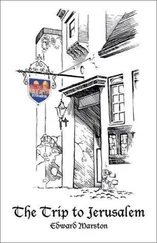So Munk found himself returning again and again to Sivi's beautiful seaside villa in Smyrna, an exile now from a European era that would soon cease to exist.
It's almost over, he said to Sivi one afternoon in the spring of 1918. My family has lived in Budapest since the ninth century, but with this war a whole way of life will disappear.
They were sitting in Sivi's garden and Sivi was pouring tea, elegant as always in one of the long red dressing gowns that he habitually wore until after sunset, when he dressed for the theater or the opera.
He paused to admire the large ruby rings on his fingers. As usual a smile hovered around his eyes and there was a touch of mischief in his voice.
How's this, young Munk? You're not surrendering to melancholy, are you? If I were you I'd look at the matter quite differently. Ten centuries locked in the rain and mist of central Europe? Time to make an escape, I should think, and what better season for it than this one? Ah yes, spring and the sea and a distant shore. Exactly what's needed to stir unexpected juices. But you always said you wanted to get away, and now you have. For good, certainly. Still, a touch of nostalgia perhaps?
Munk shrugged.
I guess so.
Of course, and there's nothing wrong with that. But if I may say so, this twinge of nostalgia you feel has nothing to do with a place really, with a sudden longing for Budapest. It has to do with time, I suspect, with having been a child there, innocent and protected. That rare condition can cause nostalgia in all of us. Am I right?
I suppose. It's true I feel I'm getting old.
Sivi laughed wickedly.
As indeed you are, young Munk. Late twenties? An absolutely ancient age. I had a friend once who felt the same way as he drew near thirty. His youth was behind him and suicide seemed the only answer. He asked me to find him the necessary pills and I said I would, but it might take a few hours. In the meantime I suggested he go out and buy himself a new dress and hat, I mean a quite extravagant dress, and position himself in one of the better cafés on the harbor and wait for me there. I told him if he was going to die he ought to look his best when he went.
So he bought the dress?
He did. But by the time I arrived at the café he was no longer there. It seems a handsome young Greek sailor had come strolling by and winked at him, and they had an aperitif together and one thing led to another, and I couldn't find him anywhere for three days. When I did I told him I had the pills. What pills?
he said, I'm in love. And that was that, although of course this occurred around 1880 when gowns were much more lavish than today, and had bustles as well that could give a man an immediate lift.
Munk laughed.
Was this friend a tall man?
He was.
Large and bulky?
More or less.
With an impressive moustache he twirled on occasion?
Indeed, it was probably just such an action that caught the eye of the handsome young Greek sailor as he went strolling by.
How long did the love affair last?
Until the young sailor's ship sailed, a week or so. And my friend was heartbroken when it was over.
Did you consider pills again?
Certainly not. I'd learned what to do. I went out and bought another extravagant gown and positioned myself once more in one of the better cafés. Within the hour events had taken a turn as they will, and a whole new adventure had begun to unfold. You see there's a moral to this tale, although of course it doesn't apply to everyone. I contemplated suicide because I felt my youth was behind me, but the solution was much simpler. All I had to do was put another youth behind me.
Munk laughed again as Sivi happily wagged his head.
That's terrible, Sivi. You're unspeakable.
True. But I've continued to follow this wisdom and it's kept me going quite well.
Sivi delicately raised his teacup and sipped.
And what news do you have from the Sarahs, Munk? Have they been making any plans for after the war?
Yes. They've decided to emigrate.
What? All of them?
Yes, all of them.
Extraordinary. Where to?
A few to Canada and Australia and the United States. Most of them to South America.
Sivi sighed.
A new Diaspora, they seem never to end. Yes, well, I guess it isn't all that extraordinary. The banks are finished, I take it? The war has been that hard on them?
Yes.
Sivi nodded gently.
It happens, of course. The Old World becomes too old for some. I have cousins in Argentina whom I've never met. And what of the men in the family? Will there now be all-male Szondi baroque ensembles in various corners of the New World, mostly South America?
Not for a while, I would think. They'll have to give up music and go back to running discount dry goods stores to support the Sarahs. Petty local trade again, only this time in Sao Paulo and Sydney and New York.
But surely only for a time, Munk. The Sarahs are too clever not to get something going again before long.
I imagine.
Oh yes, they'll fare well, we know that. It's you I'm concerned about. Dare I be frank?
Munk smiled.
You old sinner. Have you ever been anything else?
Sivi wagged his head appreciatively and examined the flow of his dressing gown, straightening a fold here and there.
Well not for the last four or five decades, in any case. Not since I decided at an early age to recognize the creature I saw leering at me every morning in the mirror. But then too, I had the advantage of growing up in beautiful Smyrna where the light is so pure and the sea so sparkling, well, all things seem natural, even me. So it wasn't that difficult to admit that the lascivious beast I saw in the mirror wasn't a beast at all, just me, basically harmless and in love with love, merely insatiable when it comes to the pleasures to be found on a secluded stretch of beach when the sun is high and the white sand softly burns your skin, and the brilliant blue sea whispers now and later, now and always, love and life and the all-healing sea.
Munk smiled. He held his left hand out to the side and strummed with his right in front of him, reciting a verse.
Gaily the troubadour touched his guitar,
as he was wandering home from the wars.
Singing from Palestine, hither I come.
Lady love, lady love, welcome me home.
Sivi laughed.
Quite, he said. The aging troubadour forever wanders, forever singing that sins aren't sins when seen naked in the sun, singing that only darkness and despair can twist an act of love into regret. But we were talking about you, young Munk, and I was going to be frank. Well it's simply this. It's obvious you want something and don't know what it is. I mean something more than an occupation, a home and a family and friends or whatever. That's so, isn't it.
Of course.
Yes, blood tells. Mine is that of the ancient Greeks who reveled in their lucid sunlight, yours is that of your remarkable great-grandfather, Johann Luigi Szondi, his very name suggesting contradictory antecedents, a mysterious explorer whose tireless journeys you've never been quite able to comprehend.
All that in only eight short years? Penetrating Medina and Mecca and measuring Rameses' ear? Eating dates in Nubia while covering nine hundred miles a month? Gazing upon the stones of a deserted rose-red city half as old as time? Yes, astonishing exploits.
I don't want to leave, announced Munk abruptly, the words said with such force they startled Sivi.
Leave? Indeed, nor do I. But what are we referring to? Life? Smyrna? This garden with its spring flowers in bloom?
This part of the world, added Munk.
Sivi relaxed in his chair.
Ah, of course, the Eastern Mediterranean. No one in his right mind would want to leave it. But who ever suggested such a preposterous notion?
Читать дальше












